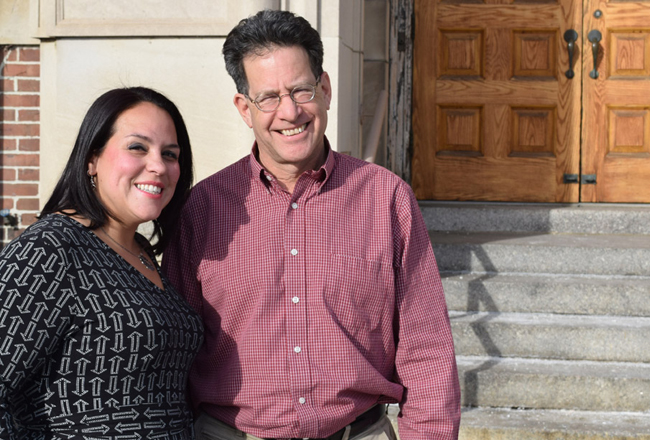When the Latino Scholarship Fund was first conceived in 1994, its roots were modest: Danbury social worker Ileana Velazquez and her husband, retired high school teacher Peter Kalman, took it upon themselves to address a disparity in local education.
“They noticed there was a trend going on in Danbury high schools. Students in the Latino community were twice as likely not to continue on to secondary education and that was primarily due to lack of funding,” said Abigail Kopp, president of the fund.

By 1996, through a series of small fundraisers and the addition of Union Savings Bank as a corporate donor, Velazquez and Kalman created a scholarship fund that raised $10,000 for their first wave of student recipients. While the couple later retired from the nonprofit they created, the Latino Scholarship Fund has continued their mission in helping Danbury area high school graduates move into their freshman year of college.
“In our 24-year history, we have given away close to three-quarters of a million dollars in scholarships,” Kopp said.
But at this point in the endeavor, she finds the nonprofit at a crossroad.
“The scholarship has a long history and we”™re constantly pulling money from the same resources,” she said. “We need to pull from new and younger audiences so we can continue to thrive.”
Complicating matters for the fund has been the increasing cost of college tuition.
“Our goal more recently is to have a higher monetary amount per scholarship and have a longer impact,” Kopp said. “When we do scholarships like that, we do less; eight to 10 scholarships per year totaling about $35,000 to $40,000. In the past, if we had x-amount of candidates and x-amount of dollars, we”™d split it fairly evenly. But with the rising cost of education, we figured that it was better to impact a smaller number of people greatly than a larger number of people minutely.”
The fund focuses on aspiring college freshmen from Bethel, Brookfield, Danbury, New Fairfield, New Milford, Redding and Sherman. Recipients must have at least one parent or grandparent from a Spanish-speaking country and should be a U.S. citizen, a permanent resident or a participant in the Deferred Action for Childhood Arrival program.
Paul Steinmetz, the fund”™s treasurer, noted that when the nonprofit began, most of the scholarships went to immigrant students. Now the majority of the funds are given to first-generation U.S. citizens. He pointed out that students seeking both two- and four-year college and vocational school educations are eligible for consideration. “The whole goal of the fund is academic achievement,” he said.
Steinmetz is also the director of public affairs and community relations at Western Connecticut State University, which is among the corporate sponsors of the fund.
“The university had an interest since the beginning and I”™ve been on the board for nine or 10 years,” he said. “It is a great project and it is really important to this region that these kids get help. Most of them are the first generation in their family going to college.”
Kopp, who works as a technical sales representative at JRS Pharma in Patterson, New York, is the first member of her family to go straight to college after graduating from high school. She has been devoting up to two hours per day to the nonprofit in the run-up for its major fundraising event, the 24th annual gala to be held Feb. 3 at the Amber Room Colonnade in Danbury. She has been encouraging the all-volunteer executive committee and board of directors to “take ownership” in expanding the fund”™s visibility and financial sourcing.
“We only have enough funds for high school students starting the college journey,” she said. “Our goal is to help students working for their second, third or fourth year of college or their master”™s degree, because we know those are the harder years to pay for.”
For Steinmetz, the educational success of the fund”™s recipients is a win-win for the wider society.
“In the broader sense, the community cannot succeed and thrive if we have bright students who don”™t have access to higher education because they can”™t afford it,” he said.


















